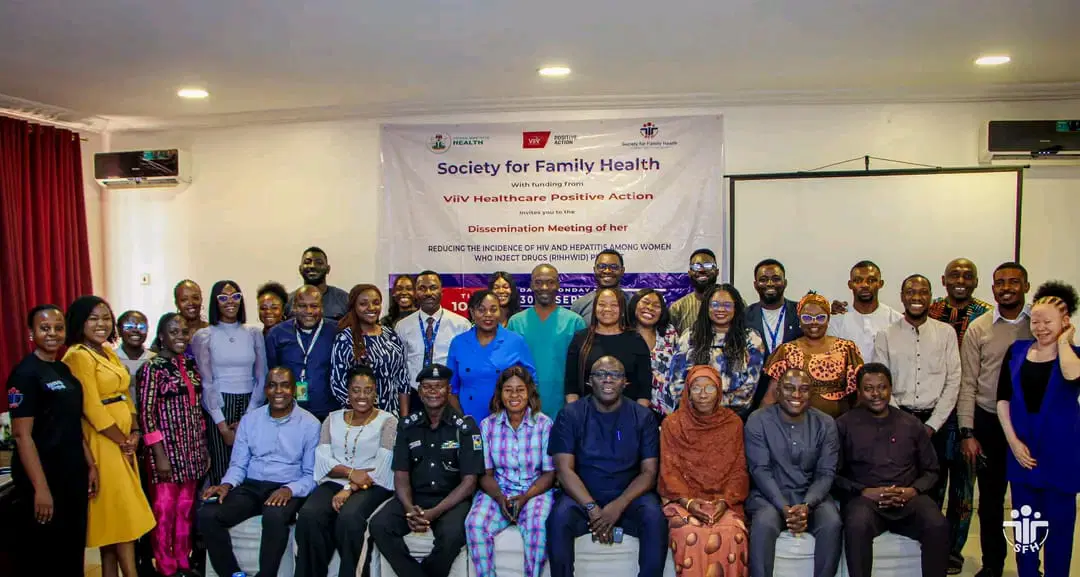Between 2022 and 2024, significant strides have been made in linking women to crucial health services through the National Needle and Syringe Programme (NSP). Notably, 663 women were connected to cervical cancer screening via the Society for Family Health’s (SFH) Reducing the Incidence of HIV and Hepatitis among Women Who Inject Drugs (WIDs) project. This initiative reached a total of 7,540 WIDs, providing essential HIV testing services to 5,412 individuals, screening 3,878 for Hepatitis C, and successfully linking 61 women to HIV treatment.
Funded by ViiV Healthcare Positive Action, the project was implemented by the Society for Family Health and aimed to address the unique health challenges faced by women in three pilot states: Abia, Gombe, and Oyo. Recently, the project held its End of Project Dissemination Meeting in Abuja, where key stakeholders from government agencies, the Nigeria Police, and the World Health Organization (WHO) gathered to discuss outcomes and future strategies.
During the meeting, Programme Coordinator Peace Ikani emphasized the importance of ongoing collaboration among stakeholders to sustain harm reduction efforts. She pointed out that women who inject drugs represent an estimated 20% of all drug users globally, a figure likely understated due to issues like criminalization, gender inequality, and social stigma.
Ikani highlighted the dual stigma faced by women who inject drugs, noting that it can lead to “compounded adverse effects.” These women often encounter significant challenges, including police intimidation and sexual assault. Ikani shared troubling instances where women felt pressured to offer sexual favors to evade police scrutiny, resulting in a reluctance to report violence to law enforcement due to fear and distrust.
The dissemination meeting served as a crucial platform for addressing these challenges and reinforcing the need for targeted interventions and supportive policies to improve the lives of women who inject drugs in Nigeria. The emphasis on collaboration among stakeholders aims to enhance the effectiveness of harm reduction initiatives and promote a more inclusive and supportive healthcare environment for vulnerable populations.

